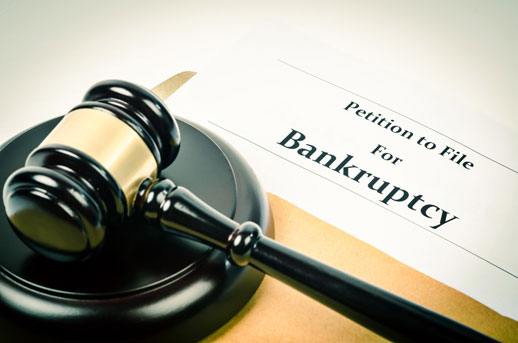If you’re thinking about filing for bankruptcy, hiring a qualified bankruptcy lawyer is your best option for a successful conclusion. Although it is possible to file for bankruptcy without employing an attorney, doing so is not recommended. “Filing personal bankruptcy under Chapter 7 or Chapter 13 requires thorough preparation and comprehension of legal concerns,” the judicial system recommends. Your rights may be harmed if you have a misunderstanding of the law or make mistakes during the process. The statute prohibits court personnel and bankruptcy judges from providing legal advice.” More on bankruptcy lawyer, why you need one are clearly stated in this article.
What Should I Expect From My Bankruptcy Lawyer
Filing for bankruptcy is a great way to get out from under burdensome debt, and most people feel a tremendous sense of relief when their bankruptcy case is over. But understanding the process and filling out the bankruptcy forms can be daunting.
That’s where a bankruptcy attorney can help. You will not only receive legal counsel, but a bankruptcy attorney will also handle all of the paperwork from beginning to end. The following are some of the most frequent sorts of services that your bankruptcy lawyer can provide.
#1. Expect Competence From Your Bankruptcy Lawyer
Not all bankruptcy cases are complicated, but they aren’t all easy, either. Either way, your bankruptcy lawyer should have the skill level necessary to handle your case.
In general, the difficulty of your bankruptcy will depend on:
- the facts of your case
- whether you file for Chapter 7 or Chapter 13 bankruptcy
- whether the bankruptcy trustee will sell any of your property (an asset or “no asset” bankruptcy case)
- if you own a small business, and
- the involvement of bankruptcy litigation.
One way to find out if it’s a good fit is to ask whether the lawyer has represented clients in similar situations in the past.
#2. Expect Sound Legal Advice From Your Bankruptcy Lawyer
In general, your retainer agreement (the contract you and your attorney sign) will outline the services your bankruptcy attorney will provide. Your attorney’s job is also to provide you with competent advice throughout the bankruptcy process.
First, you can expect your attorney to tell you whether filing for bankruptcy would be in your best interest. If it is, you should also learn:
- Whether bankruptcy Chapter 7, Chapter 13, or another type will help you achieve your financial goals
- What you can expect during the bankruptcy process, and
- Whether your case involves any particular difficulties or risks.
Most importantly, if you have any questions, you can expect your attorney to respond to your calls or emails promptly.
#3. Expect Your Bankruptcy Lawyer to Prepare and File Your Paperwork
You must fill out a hefty packet of forms in order to file for bankruptcy. Almost all bankruptcy lawyers use specialist software to create and file your court-mandated bankruptcy papers.
You’ll give your lawyer all of your financial information, including your income, expenses, assets, and debts. It will be used by your lawyer to prepare official forms, which he or she will then go over with you to ensure accuracy.
You may also be required to submit additional paperwork or documents to the court or the trustee. Your lawyer will make certain to do it as soon as possible because missing a bankruptcy deadline might result in:
- Delays in the process
- Dismissal of your case, or
- Other adverse consequences.
For these reasons, one of the responsibilities of your bankruptcy attorney is to know the local rules and filing procedures.
#4. Expect Your Bankruptcy Lawyer to Represent You at Hearings
After filing for bankruptcy, all debtors must attend a mandatory hearing called the 341 meeting of creditors. But, depending on your case, you (or your attorney) might need to go to additional hearings.
Some common types of hearings you can expect your attorney to represent you at:
- Chapter 13 confirmation hearings
- Chapter 7 reaffirmation hearings, and
- any other motion or objection hearings filed by you, your creditors, or the trustee.
In most cases, before you file your bankruptcy case, your attorney will be able to advise you about the hearings you can anticipate attending.
Why a Bankruptcy Attorney Is Worth the Cost
The most significant advantage to you is that an experienced attorney can anticipate any potential snags in your case and prepare accordingly. Here’s just a taste of what a good consumer bankruptcy lawyer can do for you.
Bankruptcy Planning:
#1. Consider alternatives to bankruptcy
Bankruptcy may not be the only option for achieving financial stability. If bankruptcy is not the best option, your lawyer will provide a suitable bankruptcy alternative.
#2. Decide which type of bankruptcy to file
Chapters 7 and 13 achieve distinct objectives and serve different purposes. For example, Chapter 7 will help you get rid of a lot of debt quickly, but it won’t help you save your home if you’re behind on your payments. Your lawyer will carefully assess your desires and needs before recommending a strategy to assist you to reach your objectives. (See Should I File for Chapter 7 or Chapter 13 Bankruptcy?) for more details.
Bankruptcy Preparation:
#1. Apply the means test
The means test determines whether you are eligible for Chapter 7 bankruptcy or if you can afford to make payments in a Chapter 13 bankruptcy case. Any special circumstances you present will be understood by an attorney.
#2. Value your property
Do you know how to value your dining room set or your 5-year-old TV? Your attorney will make sure that you disclose and value your assets realistically.
#3. Choose and apply exemptions
Every state has a separate exemption system used to keep the property in bankruptcy. Likewise, your attorney will understand how to use the exemption rules to protect as many of your assets as possible.
#4. Determine Discharge of Debts
Some debts don’t get wiped out (discharged) in bankruptcy. Others go away only if certain conditions get met. Your attorney will explain which debts will get eliminated and which will survive your case.
During Your Bankruptcy
#1. Complete the schedules and other paperwork
Under penalty of perjury, you will file pages of financial data on your debts, income, expenses, assets, and recent financial activities. Similarly, your lawyer will know what information you must provide, how to value your assets, what constitutes income, which costs are “reasonable and necessary,” which tax returns to provide, and a variety of other difficulties.
#2. Guide you through the bankruptcy case
Your attorney will explain and prepare you for what’s ahead, like the role of the bankruptcy trustee and the judge, thus, the steps you must take to qualify for a discharge, and what actions your creditors can take.
#3. Provide accurate and complete testimony
You must sign your bankruptcy paperwork under penalty of perjury, stating that the information is correct to the best of your knowledge. You’ll swear or affirm that you’re talking the truth at your creditors’ meeting and whenever you’re in court. Your lawyer will accompany you to ensure that your testimony is accurate and comprehensive.
#4. Handle creditors who violate the automatic stay
Some creditors simply do not know when to stop pursuing debtors. Your attorney can compel compliance or urge the court to hold the creditor in contempt if a creditor violates the automatic stay (the injunctive order that bars collection efforts once the case is filed).
#5. Negotiate with your creditors
Your attorney can work out a reaffirmation arrangement or redemption with a secured creditor in Chapter 7 bankruptcy, allowing you to keep your home or car. More so, to make your repayment plan affordable, your attorney will negotiate with your creditors on payment terms, collateral value (property that secures payment of a debt), and interest rates in Chapter 13 bankruptcy.
#6. Modify a Chapter 13 repayment plan
If your circumstances change during your Chapter 13 case, your attorney can assist you in requesting a temporary or permanent revision to the provisions of your Chapter 13 plan or an early discharge due to hardship from the court.
Will Bankruptcy Clear all Debt?
Because filing for bankruptcy does not discharge all debts, it is critical that you determine which of your obligations will not be discharged and then formulate a strategy to deal with those obligations. It’s possible that you’ll have to maintain making payments on some of your debts even after you declare bankruptcy. You may choose to cease paying certain debts, but you will need to resume paying them after your bankruptcy is over.
Do you Still Owe Money After Bankruptcy?
After the bankruptcy is discharged, the remaining amount that you owe will be wiped out entirely. There are some types of debts that cannot be discharged through Chapter 7 bankruptcy. You will still be responsible for making payments to the court for alimony and child support, as well as taxes and school debts.
How Badly Does Bankruptcy Damage Your Credit?
Declaring bankruptcy will have a catastrophic effect on the health of your credit. The precise impacts will differ from case to case. A strong credit score of 700 or higher can drop by at least 200 points if the person files for bankruptcy, as stated by the leading scoring model, FICO. If your score is somewhat lower than 680, you could potentially lose anywhere from 130 to 150 points.
How Long Does Bankruptcy Affect Your Life?
The bankruptcy will continue to have an effect on your credit score until it is erased from your credit reports, as your credit score is calculated using the information that is contained in those reports. This means that a Chapter 7 bankruptcy will have an influence on your score for up to ten years, while a Chapter 13 bankruptcy will have an impact on your score for up to seven years.
How to Find a Good Bankruptcy Lawyer
Lawyers that specialize in bankruptcy cases are known as bankruptcy lawyers. When it comes to bankruptcy, you’ll want to choose an expert bankruptcy lawyer rather than a general practitioner. Not only does bankruptcy necessitate a thorough comprehension of numerous principles, but making a mistake can be costly. Most lawyers won’t take on a bankruptcy case unless they consistently practice bankruptcy law.
Here are some pointers on how to locate the best bankruptcy attorney for the job.
#1. Personal Referrals
Knowing someone who has had a positive experience with a bankruptcy attorney is frequently the best source of information. Make a call to that lawyer first. Your lawyer may also know a competent bankruptcy attorney. Alternatively, if a family member or acquaintance has previously hired a lawyer for a non-bankruptcy problem, inquire if that professional would recommend bankruptcy counsel.
#2. Group Legal Plans
If you’re a member of a plan that provides free or low-cost legal assistance and the plan covers bankruptcies, make that your first stop in looking for a lawyer.
#3. Lawyer-Referral Panels
Most county bar associations can provide you with the names of local bankruptcy attorneys. Keep in mind that bar associations do not conduct background checks on lawyers. Furthermore, it is your responsibility to investigate the credentials and experience of the person the bar organization suggests you to.
#4. Online Directories
You can also find lists of bankruptcy lawyers online. A useful directory will provide information about the lawyer, such as the types of cases they handle, their philosophy on representing clients, and typical fees. One place to start is Nolo’s lawyer directory, at www.nolo.com/lawyers.
#5. Legal Aid
Legal Aid offices provide aid in a variety of areas. Bankruptcies are handled by a few offices, although the majority do not. Legal Aid is funded in part by the Government Legal Services Corporation and is aimed at low-income people. Also, a bankruptcy Chapter 7 filer has a better chance of getting help. Only a small percentage of Chapter 13 bankruptcy filers will be eligible.
#6. Legal Clinics
Many law schools sponsor legal clinics and provide free legal advice to consumers. In fact, some legal clinics have the same income requirements as Legal Aid; others offer free services to low- and moderate-income people.
Cheapest bankruptcy lawyer
Most people who are interested in filing bankruptcy are suffering from low income. Consequently, we specialize in working with low-income individuals and our fees are one of the lowest in Los Angeles County. We also have easy payment plans to make it easier for our low-income clients.
#1. Top Tier Service at an Affordable Low Cost
Our law practice has been in operation for over 11 years, and we have filed over 1000 bankruptcy cases with a success rate of over 99 percent. In addition, it can be tough to find a law firm that you can trust. Our clients have told us several horror stories. Also, you can trust that our bankruptcy lawyers will handle your case with care and expertise.
#2. Fair and Reasonable Fees
We believe in delivering excellent representation at a reasonable cost. We recognize that you are experiencing financial challenges, so our costs are designed to reflect that. As a result, our rates start at just $925*. Our costs are determined by the difficulty of your case. If your situation is straightforward, our prices will reflect that. At the completion of your meeting, you will be offered a quotation for our services.
#3. We Guarantee Your Discharge
We are not only one of the most affordable law firms in Los Angeles, but we are also the only firm in the city to guarantee your discharge. Also, we will repay your attorney’s fees if the court does not give you a discharge. You must supply all required documents, hence, disclose all relevant information, speak the truth, attend the Meeting of Creditors, and complete all mandatory courses.
#4. Payment Plans Available
If you are unable to come up with the fees to pay for your bankruptcy. We will make a payment plan. Our payment plan allows you to pay our fees in 4 easy monthly installments.
#5. Free Consultations
Request a free consultation with a lawyer. Many other bankruptcy and/or debt relief law firms and companies will refer you to secretaries and paralegals, and you will seldom if ever, thus, speak with an actual attorney. (Beware! They are most likely delivering legal advice without a law license. They’re breaking the law when it comes to practicing law.) Only a real licensed lawyer will meet with you at MacLean Chung Law Firm for your consultation.
#6. Filing Fee Waiver
If you qualify for a filing fee waiver with the court, our bankruptcy attorneys will help. Therefore our attorneys have a great track record of helping people in need apply and get their filing fees waived by the court.
#7. Telephone and Zoom Appointments are Available
We understand that you have a lot on your plate. If you are unable to visit us in person, we can do your consultation and following meetings over the phone or via Zoom. Everything can be done through text messages, emails, Zoom, and phone calls. You are under no obligation to visit our office if it is inconvenient for you.
Is it Better to File Bankruptcy or Just Not Pay?
Filing for bankruptcy will stop debt collectors from contacting you, but the headaches may not go away for years. Debt settlement outside of bankruptcy may take more time, but if properly arranged, it may cause less damage to your credit rating than bankruptcy would. Debt settlement will remain on your credit report for seven years, but it will have a less detrimental effect on your credit score than other forms of debt relief.
Is it Better to File a Chapter 7 or 13?
The majority of people favor filing for bankruptcy under Chapter 7 because, in contrast to filing under Chapter 13, it does not force you to repay a percentage of your debt to creditors. When filing for bankruptcy under Chapter 13, you have three to five years to pay back all of your creditors the portion of your income that is considered disposable. This is the amount of money that is left over after certain monthly costs have been deducted.
Is Bankruptcy Worth Claiming?
If your wages are being garnished or if credit card companies or payday lenders are pressuring you to collect payments that you can’t afford to pay, declaring bankruptcy can be the best option to seek lasting relief from these types of problems. Filing for bankruptcy, on the other hand, might not be worth it if the majority of your debts cannot be discharged.
FAQ
How can a bankruptcy attorney help?
A bankruptcy attorney gives legal advice and helps with legal issues related to your debt. They can help you file a bankruptcy petition with the court. At the end of a successful bankruptcy case, certain debts are erased, and you never have to pay them back.
What is the average credit score after Chapter 7?
about 530
The average credit score after bankruptcy is about 530, based on VantageScore data. In general, bankruptcy can cause a person’s credit score to drop between 150 points and 240 points. You can check out WalletHub’s credit score simulator to get a better idea of how much your score will change due to bankruptcy
What do you lose if you declare bankruptcy?
Filing Chapter 7 bankruptcy wipes out most types of debt, including credit card debt, medical bills, and personal loans. Your obligation to pay these types of unsecured debt is eliminated when the bankruptcy court grants you a bankruptcy discharge.






